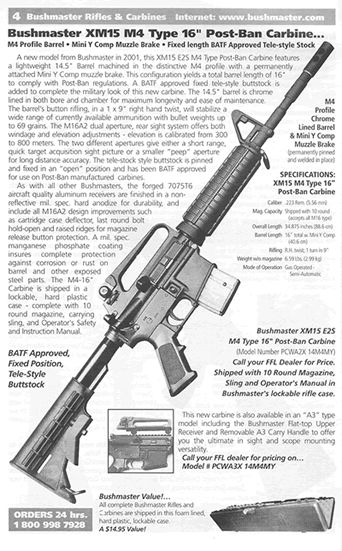Phoenix
Member
SAN FRANCISCO, California (AP) -- Ten years after it was born out of the carnage of three California mass shootings, the federal assault weapons ban is fading out of existence Monday.
While manufacturers look for a boom in business as people buy up previously banned weapons like AK-47s, Uzis and TEC-9s, police chiefs warn of an upsurge in crime.
The law's chief sponsor, Democratic Sen. Dianne Feinstein, is urging retailers not to sell the disputed weapons, while hoping for a change in the nation's political climate.
Feinstein was horrified by the 1984 shooting rampage at a McDonald's in San Diego County that killed 21 people and the massacre of five people five years later at a Stockton elementary school yard.
But it was the shooting at a law firm in San Francisco in 1993, in which eight were killed and six wounded, that persuaded her to push for the assault weapons ban.
"It was the ultimate shock," Feinstein said in an interview. "That building is one of the great economic citadels in the city, and you see this prestigious law firm. And then -- boom. Someone comes in, aggrieved, and goes right through the place."
Just over a year after the San Francisco shootings, President Bill Clinton signed Feinstein's bill into law. It banned the sale of 19 specific semiautomatic weapons and ammunition clips of 10 rounds or more.
Former Presidents Gerald Ford, Jimmy Carter and Ronald Reagan wrote to all members of the House to encourage them to pass the ban at the time.
But it was set to expire exactly 10 years later if it weren't renewed in Congress, and President George W. Bush never pushed Congressional leaders to move the renewal legislation.
Loopholes allowed manufacturers to keep many weapons on the market simply by changing their names or altering some of their features or accessories. And because existing weapons and large ammo clips were protected by a "grandfather" provision, many pre-ban guns remained in use.
"The bill's not perfect; we could have written a better bill," Feinstein says now. "I just didn't know how craven the gun manufacturers would be."
Studies done by pro- and antigun groups as well as the Justice Department show conflicting results on whether the ban helped reduce crime.
California and other more urban states, including Massachusetts and New York, have passed their own laws curbing the use of assault weapons. Some of those are more stringent than the federal ban.
Source
Is this why there are threads by people asking what kind of gun to get?

